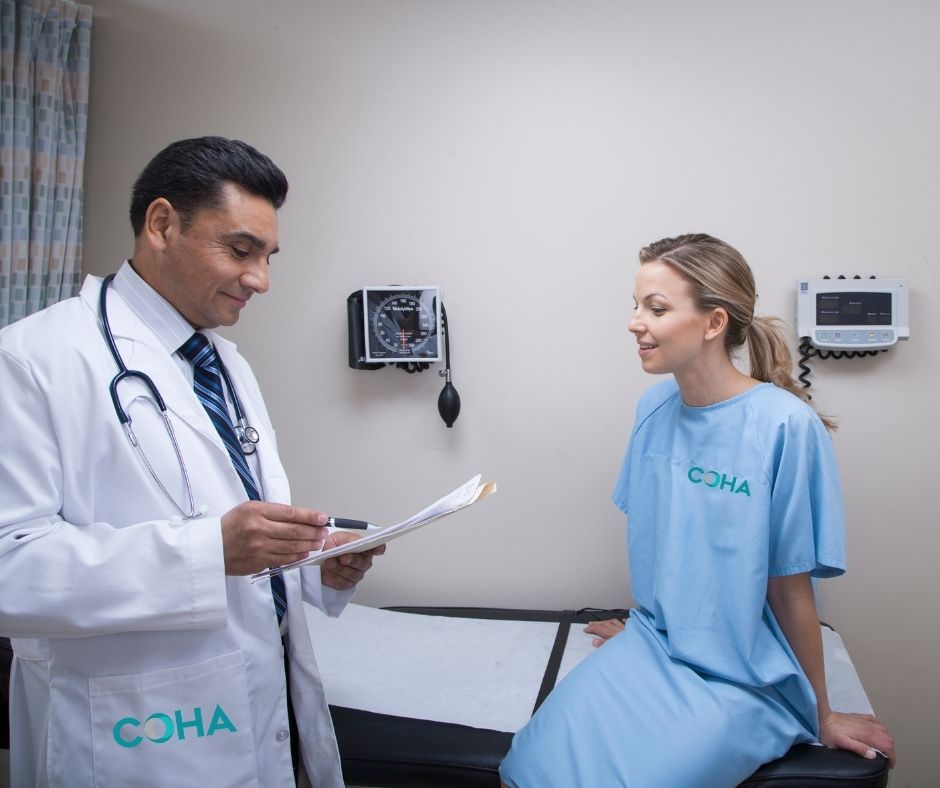


October is breast cancer awareness month. Over 250,000 women are diagnosed with breast cancer every year, and 42,000 women die from it. Breast cancer is often found in women older than 50 years old, but it can affect women younger than 45 years old. Breast cancer can be cured if it is diagnosed early, so it is essential to have regular screenings and stay informed about your breast health.
Breast cancer occurs when some breast cells grow abnormally. These can be cells located in the milk-producing ducts, glandular tissue, or other tissue areas within the breast. These cells divide quickly, forming a mass or lump in the breast.
Here are some factors that may increase your risk of developing breast cancer:
Examining your breasts regularly will help you notice any abnormal changes. A self-breast exam includes:
Examine your breasts in the mirror while standing straight and check their color, size, and shape. Inform your doctor if you experience any abnormal changes in your breasts, including redness, lumps, hardened tissue, puckering, or an inverted nipple.
If one or both nipples discharge milky, watery, or yellow fluid or blood, it can indicate breast cancer.
Feel your breasts while lying down on your back. Breast tissue spreads out when lying down, making it easier to feel. Use a circular motion to feel your entire breast from top to bottom and side to side. Place your fingers directly on your breasts and feel under the nipple for any changes. Gently press your nipple inward and make sure it moves smoothly. Also, check the upper and outer area of your breasts, near to the armpit.

Finding lumps or changes in the breast is not a sign of cancer, as these are normal changes that occur during the menstrual cycles. Also, your breasts change as you age. However, schedule an appointment with your doctor if you notice:
Your doctor will examine these changes and recommend the right treatment.
At Chesapeake Oncology Hematology Associates (COHA), we have specialists, like Dr. Gayatri Nimmagadda, Dr. Melissa Vyfhuis, Dr. Yudishtra Markan, and Dr. Russel De Luca, to treat breast cancer. Our breast cancer treatment options include:
Contact us today or schedule an appointment with us if you are looking for a breast cancer treatment with excellent outcomes. We are committed to providing compassionate and comprehensive cancer care to all our patients.